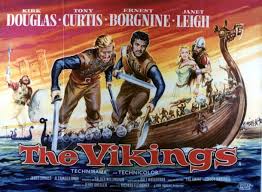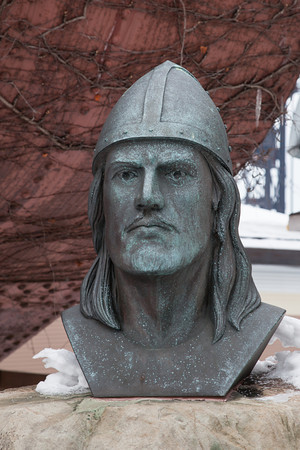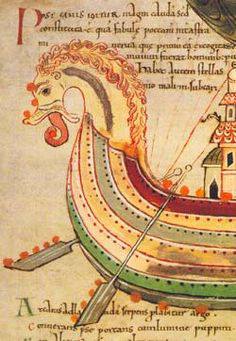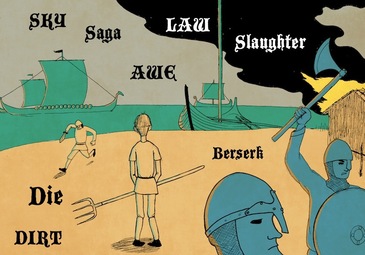And what did they do for us?
Leif Erikssonson, son of Erik the Red, who had been exiled from Iceland, landed on the coast of America around four hundred before Columbus.
These vessels were very fast and allowed a quick attack and fast escape, which could be recognized by their square sail and the dragon's head on the bow which was to protect against the evil spirits of the sea.
It has been said that without these great ships, the Viking Age would never have happened.
The planks on the ship's hull were constructed out of the wood of the oak tree and were held together with string made from wool that had been dipped in tar to prevent leaks. They were made to be able to sail in shallow water, which meant that they could travel up rivers as well as across the sea and these ships could be hauled up on a beach and as previously mentioned enabling the men to be out of the vessel and quickly into the fray.
Originally these people farmed and fished and spent much of their time in their own country, it was only in the summer that they ventured across the sea to trade and seek out new lands. However, the year 793 saw the start of the Viking migration from Scandinavia, these men from the north first raided Britain at Lindisfarne, a small holy island located off the northeast coast of England. Many of the monks were drowned, others killed and the monastery's treasures taken. In the following years their raids increased, by 866 they arrived in what they called Jorvik, our city of York, they followed this by attacking hundreds of villages and towns across the whole of the country.
How we perceive the Vikings has much to do with the Victorians, in this era the Norse man was popular, he was much written about, looked at, and listened to, men such as
Sir Walter Scott, William Morris, Edward Elgar, and Rudyard Kipling were all Viking enthusiasts.
So what did the Vikings do for us?"
Well, they founded Normandy, therefore you could claim that they invaded us twice!
They gave us the cities of Nottingham, Derby, and York.
They left behind their language and place names, especially in the north of England.
Funnily enough, they never left us those horned helmets, do you know why?
Because they never wore them!





 RSS Feed
RSS Feed
